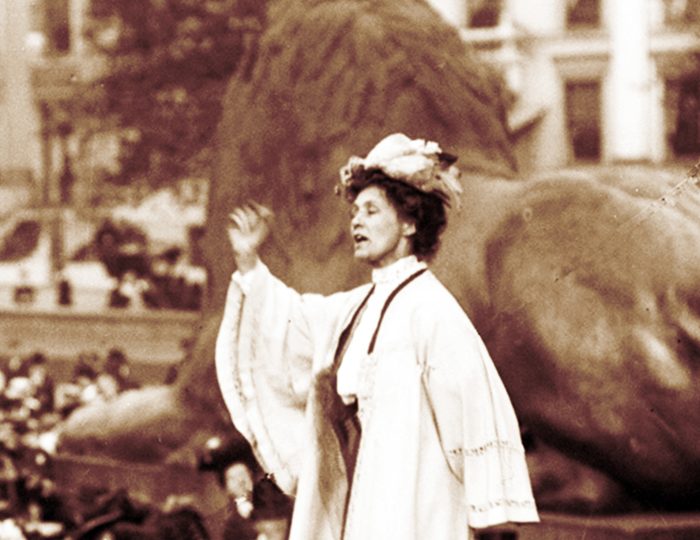Queen Alexandra, George V’s mother, described it as a ‘sad accident caused through the abominable conduct of a brutal lunatic woman’.
History has been kinder to suffragette Emily Wilding Davison who squeezed through the railings at the Epsom Derby to make a grab for the king’s horse as it raced past. Buried in Morpeth, her headstone is inscribed with the King James Version of John 15:13, ‘Greater love hath no man than this, that a man lay down his life for his friends’, along with the maxim of the Women’s Social and Political Union – ‘Deeds Not Words’.
It was nearly five years later that the Representation of the People Act was given royal assent, granting the vote to women over the age of 30 who owned property, an act whose centenary has been marked this week. In the immediate wake of #metoo, the BBC equal pay debate, and the Presidents Club debacle, celebrations are mostly tinged with reflections on how much more needs to be done.
Earlier this week, The Guardian asked a panel whether parity between men and women would be achieved in the next 100 years. Economic inequality, the cost of childcare, and the objectification, even pornification, of women were all mentioned as issues to be tackled.
Christians have a stake in these debates. Christians also have a stake in demonstrating to those around us what renewed relationships in Christ look like, not least between men and women in different spheres of life.
Notable at the beginning of the biblical story is that men and women are equally and together created in the image of God, called to exercise dominion as representatives of God on earth. This gave men and women a status and responsibility not found in other cultures of the time. Notable, too, is the New Testament’s insistence – again, largely against the grain of its first-century world – that men and women are one in Christ, caught up together in God’s plan to reconstitute humanity.
As those living out this different story, we can start with the women we know, where we are – in our family, workplace, college and church, our colleagues and clients.
Originally the Suffragette slogan, ‘Deeds Not Words’, was a call to radical action, but it resonates with the biblical injunction that faith without works is dead, and is seen most remarkably in the supreme sacrifice of Jesus giving his life for his friends.



Excellent piece
Emily Wilding Davison is a particular hero of mine. It’s interesting that Wikipedia describes her as a “staunch Feminist and passionate Christian”.
And interesting to note that the motto “Deeds not Words” was the family motto of another great Christian, Edward Wilson of the Antarctic (who died with Scott just a year earlier).
Thank you for this article. I would be glad to know what role if any other Christians of that time had in the votes for women campaign leading to the change in the law 100 years ago. Reading a useful summary article in latest edition of The Week (03.02.18), you would think it was an entirely secular movement.
As ever Anthony Billington gets to the heart of the issue. As a husband and father to three daughters, I fervently believe that Christians have a key role to play in bringing God’s kingdom as in heaven, so on earth. Equality and behavioural standards are critical to this mission.
I’m in final rehearsals for “My Fair Lady” at the Theatre Royal Bath in mid-February, in which a key song is “Show Me”…
Set at the time of the Suffragettes ultimate sacrifice, it’s shows Higgins going through the transformation that we all need to make as Christians, by first addressing his former crass perspective and then beginning a new start that is to be about action not just words… Food for thought for us all, but particularly us Christian men..
Thank you Anthony for your wisdom, biblical theology and take on this important issue at a time of historic landmark and memory. I really appreciate the call to action and lived as well as spoken action. As a Father to a Daughter and as a citizen in a diverse and multi cultural part of London, its good to be reminded that far have we come and still far must we go!
Thanks for this very helpful perspective. Who would have thought 100 years ago that Sarah Mullally would now be the bishop-elect of London? Well done that church! She will help to speed up some of the much-needed further change in how we all relate to one another.
The depiction of the Epsom incident in the ‘Suffragettes’ film really brought it home to me
One of the only explanations out there